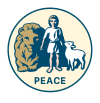|
Recent discoveries of mass, unmarked graves on the sites of former residential schools has raised many questions of racism, injustice, and genocide in Canadian history. If you would like to learn more about Indigenous culture and experiences, consider enrolling in one or all of the following courses available online for free. Or for a small fee, obtain a certificate.
Indigenous Canada - University of Alberta via Coursera Indigenous Canada is a 12-lesson Massive Open Online Course (MOOC) from the Faculty of Native Studies that explores Indigenous histories and contemporary issues in Canada. From an Indigenous perspective, this course explores key issues facing Indigenous peoples today from a historical and critical perspective highlighting national and local Indigenous-settler relations. Topics for the 12 lessons include the fur trade and other exchange relationships, land claims and environmental impacts, legal systems and rights, political conflicts and alliances, Indigenous political activism, and contemporary Indigenous life, art and its expressions. Length: 12 weeks, three-five hours per week (it’s recommended to log on three times a week, but because it’s self-directed, that’s flexible) Dates: Start at any time Curriculum: Video lectures (with text transcripts available), readings, weekly multiple-choice quizzes, optional online discussions Aboriginal Worldviews and Education - University of Toronto via Coursera This course is all about re-contextualizing what we’ve learned about Canada and its history through Indigenous points of view. It’s offered through U of T’s School of Education with the focus on how education and mindset contribute to the way non-Indigenous people think about Indigenous issues. A large portion of the curriculum is based on what Marlene Brant Castellano, the first Indigenous person to become a full-time professor in a Canadian university, identified as the characteristics of Indigenous knowledge: that it’s personal and not universal, orally transmitted, experiential, holistic, and conveyed through narrative. In addition to the content directly about the education system, the class also touches on an analysis of then-Prime Minister Stephen Harper’s 2008 apology for residential schools and episodes of the 2012 CBC series ‘8th Fire’, which involved former TV host Wab Kinew traveling the country to examine relationships Canadians have with Indigenous people. Length: Six weeks (it’s recommended to take the class twice a week) Dates: Start at any time Curriculum: Video lectures (with text transcripts available), film and TV clips, readings, short peer-graded writing assignments, quizzes Reconciliation through Indigenous Education - University of British Columbia via EdX Like the University of Toronto class, this one has an educational lens, although it isn’t just for teachers. Changing academic institutions is a central tenet of reconciliation, and both classes take up that responsibility. How can classrooms — or even everyday interactions — respect and uphold Indigenous experiences? What can we all learn from Indigenous ways of knowing? This curriculum is all about learning — from the land, from storytelling, from the way Indigenous communities teach — and ends with a focus on thoughtful and respectful relationships between Indigenous and non-Indigenous people living in Canada. Length: Six weeks, two-four hours per week. This is an instructor-paced course. Dates: Next dates have yet to be announced. Curriculum: Video lectures, narration from Indigenous knowledge keepers, self-assessed checklists, online discussions Indigenous People’s Rights - Columbia University via EdX Unlike the previous courses, the framework for this one is largely around legal rights and governmental recognition, rather than Indigenous perspectives or worldviews. It focuses on events like the declaration of Indigenous Peoples Day at the 1977 Geneva UN Conference, on the legality of treaty agreements, and on the U.N.’s Declaration on the Rights of Indigenous Peoples (UNDRIP). This is the only American course on the list, although its focus is on Indigeneity globally. There are references to the Maori protests against the British Crown, for instance. There’s also a discussion of the fascinating history of the Zapatista Uprising in Mexico, where armed insurgents, many of them rural and Indigenous, declared war on the Mexican government. Even the group’s former “leader,” Subcomandante Marcos, took orders from a council of Indigenous elders. The course doesn’t focus specifically on Canada’s colonial history or government, although it does feature an appearance by UBC professor Sheryl Lightfoot, Canada Research Chair in Global Indigenous Rights and Politics, talking about the Indian Act and the construction of the Site C Dam. Length: 10 weeks, two-four hours per week Curriculum: Video lectures (with text transcript), recommended readings, videos of experts answering common questions, optional discussion questions. Comments are closed.
|

Categories
All
Archives
April 2024
|
Quick links
|
External links
|
community of christ355 Elmira Road North, Unit 129
Guelph, ON N1K 1S5 Canada Canada West Mission: 877-411-2632 Canada East Mission: 888-411-7537 |
|
Site powered by Weebly. Managed by Community of Christ
|
